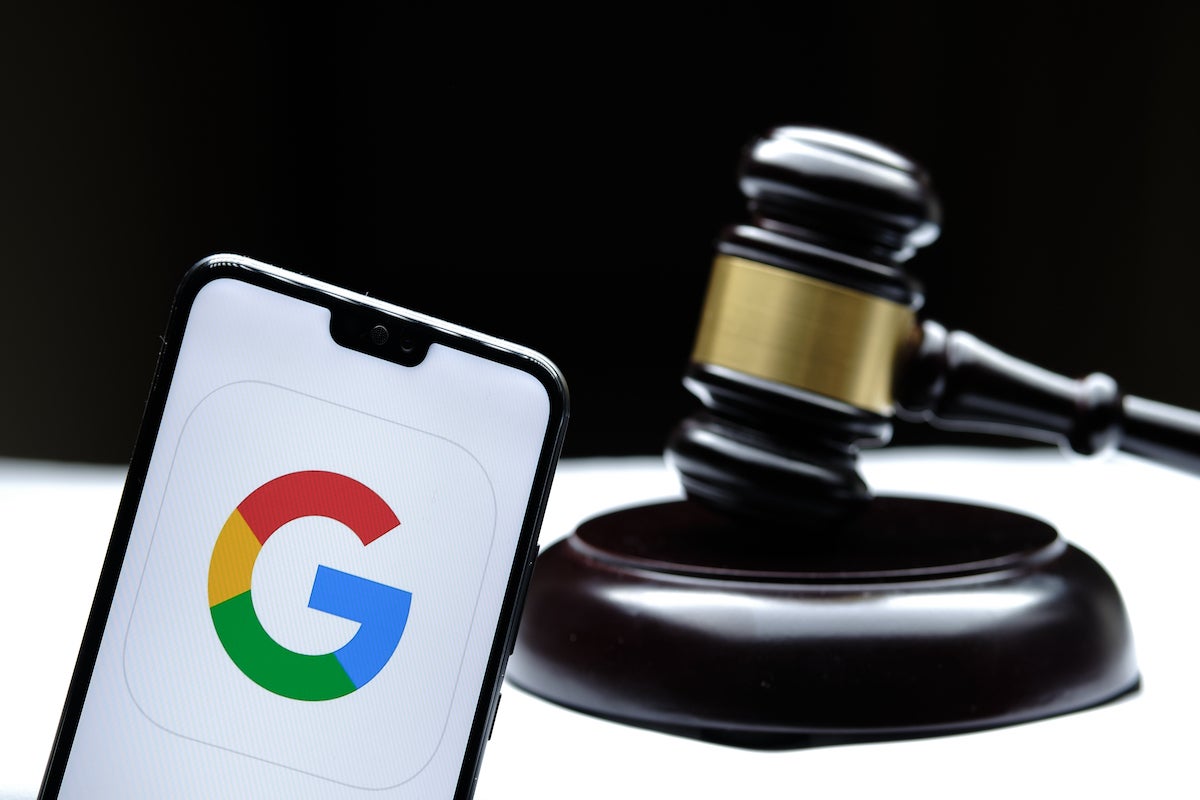On the same day that the US Federal Trade Commission sued Amazon for using anticompetitive and unfair strategies to maintain monopoly power in the online retail sector, Eddy Cue, Apple’s senior vice president of services, spent hours a few blocks away at the E. Barrett Prettyman US District Court House as a reluctant prosecution witness in the antitrust trial of Google.
The US Justice Department (DOJ) has accused Google of monopolizing the search engine market through exclusive deals to become the default search engine for device manufacturers and software companies. The feds say that Google’s nearly 90% share of the search engine market hands it an unfair competitive advantage that makes it impossible for rivals to compete.
Roughly half of Cue’s nearly four hours on the witness stand Tuesday, like much of the testimony in the three weeks of the trial so far, was hidden in a sealed courtroom, closed to the press and interested citizens. The rest of Cue’s time on the stand took place in an open session, during which the DOJ questioned him on the revenue-sharing agreement between Apple and Google, Apple’s decision to rely on Google for its default search engine, and the extent to which Apple might be ignoring Google’s more undesirable characteristics.
Drill-down on Apple’s revenue share
Megan Bellshaw, assistant chief of the DOJ’s antitrust division, questioned Cue on Apple’s information service agreement (ISA) with Google, first forged in 2002 and subsequently extended several times. Although Cue was not involved in the earlier versions, he was the lead negotiator for a revised ISA agreed to in 2016.
One of Cue’s goals during the negotiations with Sundar Pichai, CEO of Alphabet, which owns Google, was to increase revenue. Under an agreement hammered out during a sealed court session at the day’s start, a “Rosetta Stone” was developed, a rubric that allowed Cue to use letters corresponding with numbers when answering questions by Bellshaw about the revenue-sharing arrangement.
“One of the goals was to increase revenue share back to where it was in the beginning,” Cue said. Cue said Pichai couldn’t agree to Apple’s requested “c” percentage of revenue and felt that it should stay at the “a” level.
“I told him that he and I need to sit down alone next week,” Cue said. “If we can’t agree on a revenue share agreement, we should not move forward. Google ended up agreeing to pay “b” as a percentage of revenue, maintaining Google as ”the default search engine on all Apple devices where we have a search engine,” according to Cue.
Bellshaw continued questioning Cue on how much money Apple generates from its deal with Google, prompting Cue to say, “The deal has a lot more to it than just economics. I think it was fairly clear at the time that there was nobody out there in terms of search engines that was better than Google.”
The complexity of search engine choice
Bellshaw presented Cue with the easy set-up options Apple offers to…
2023-09-28 05:24:02
Post from www.computerworld.com rnrn
